State-of-the-art road weather station at the Digitrans test center for automated driving
The Digitrans test center for automated driving on the test track in St. Valentin supports the testing of driver assistance systems and automated vehicles in the rain with its expertise and outdoor sprinkler system.
The system for ADAS rain tests at the Digitrans Test Center for Autonomous Driving is supplemented by a state-of-the-art road weather station. This provides a comprehensive real-time data set of the weather conditions on the test track in St. Valentin.
Weather data provides a detailed analysis and in-depth understanding of all environmental conditions on the test track in St. Valentin.
The high-precision Road Weather Information System (RWIS), which can record all relevant environmental and road conditions on the Proving Ground in St. Valentin, was specially developed to record the most accurate and complete weather and road data possible.
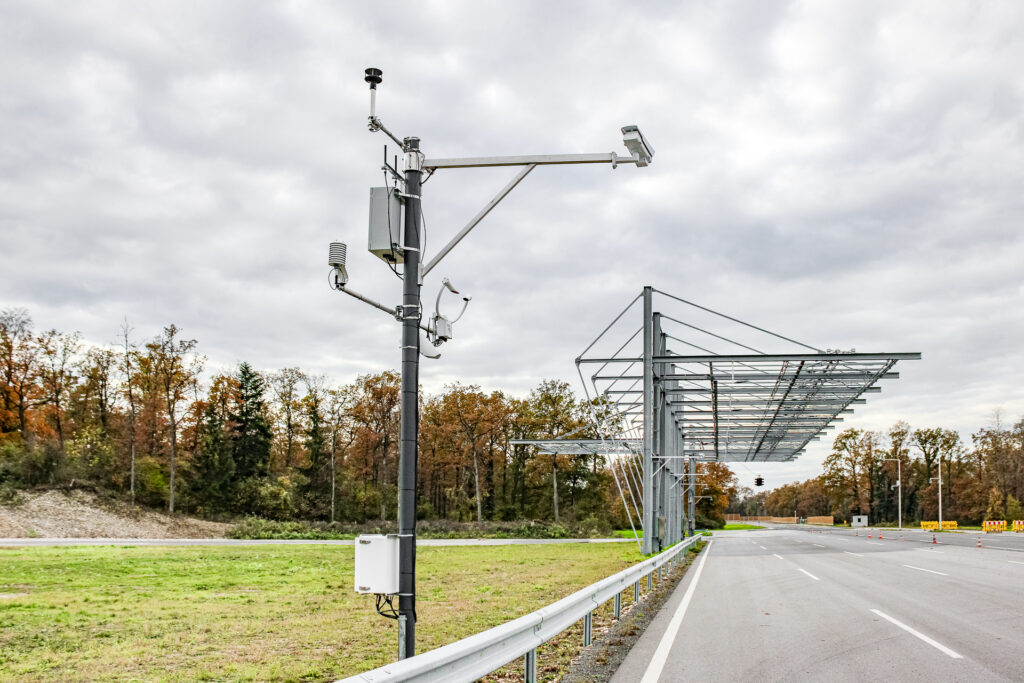
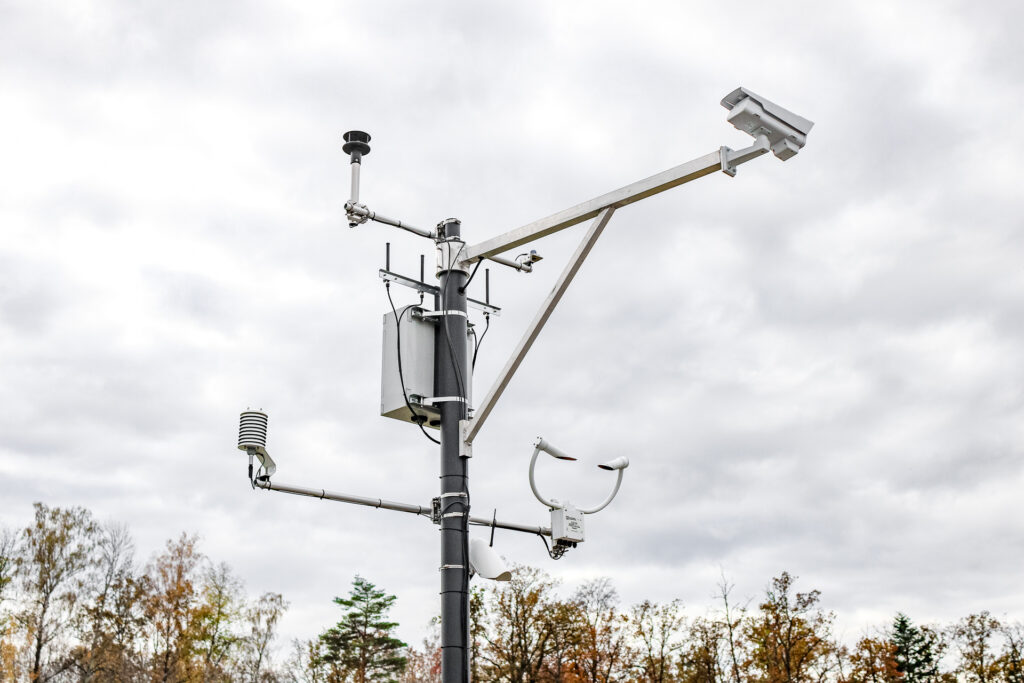
The road weather station at the Digitrans Test Center for Automated Driving provides reliable weather data that is directly comparable with the RWIS stations in Europe and the data collected worldwide © DigiTrans GmbH
The following weather data can be recorded with the road weather station on the test track for automated driving in St. Valentin:
- Visibility
- Precipitation intensity and type
- Wind temperature, direction and gusts
- Air temperature
- Relative humidity
- Dew point
- Solar radiation
- Temperature of the road
- Road condition (dry, damp, wet, icy, snow-covered)
- Height of the water film
- Salt concentration in percent
- Percentage of ice
- Coefficient of friction
- Freezing temperature NaCl
Use case for the use of the road weather station
Measurement campaign to record the environmental conditions in
the outdoor rain plant at the Digitrans Test Center
As part of the pioneering EUREKA project “EUREKA Test.EPS”, an extensive measurement campaign was carried out that focused on recording environmental conditions. Tests were carried out in Digitrans’ outdoor rain system at different rain intensities and speeds.
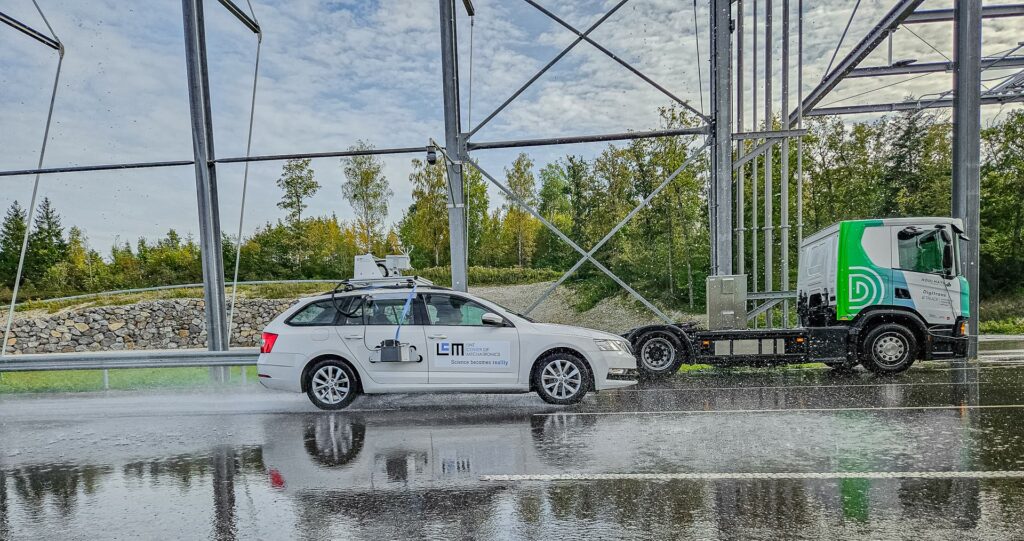
The advantages of the road weather station on the Proving Ground in St. Valentin
- Real-time, round-the-clock access to a comprehensive data set of weather and surface-related parameters
- Access to live measurements and historical records from anywhere within the Digitrans Test Center intranet network
- Ability to accurately extrapolate weather data to real-world conditions
- Increased confidence in test results
- All the information required for a site-specific road weather forecast and nowcast
„The road weather station on the Proving Ground for automated driving in St. Valentin provides us with important weather data to make analytical decisions better and faster. We now have reliable data for the development of automated vehicles and driving functions under various artificial and natural weather conditions.“
DI Dr. Christoph Feichtinger
Director R&D / Business Area Manager Know How, Consulting & Dataservices , DigiTrans GmbH

You might also be interested in
Further Insights
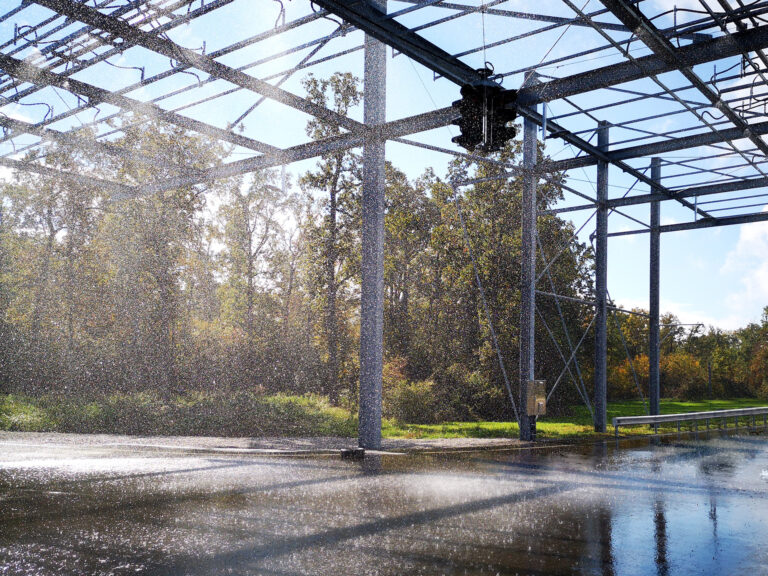
Five reasons why we built an outdoor rain plant for testing autonomous driving functions
Testing autonomous driving functions and their sensors under adverse weather conditions is an important safety criterion for the introduction of automated vehicles in Europe. Learn why it is becoming increasingly important to test these systems systematically and reproducibly.
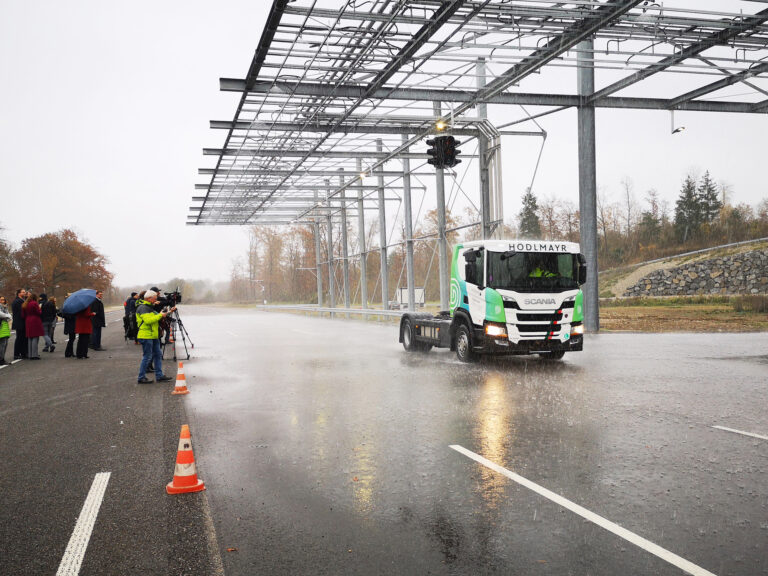
Rain tests for automated driving – Digitrans launches Outdoor Rain Plant
On November 16, 2022, the specially developed outdoor rain plant for rain tests of automated vehicles and their sensors was put into operation. The system makes it possible to generate realistic rain at the push of a button, thus significantly simplifying the testing of sensors for environment detection in rain.
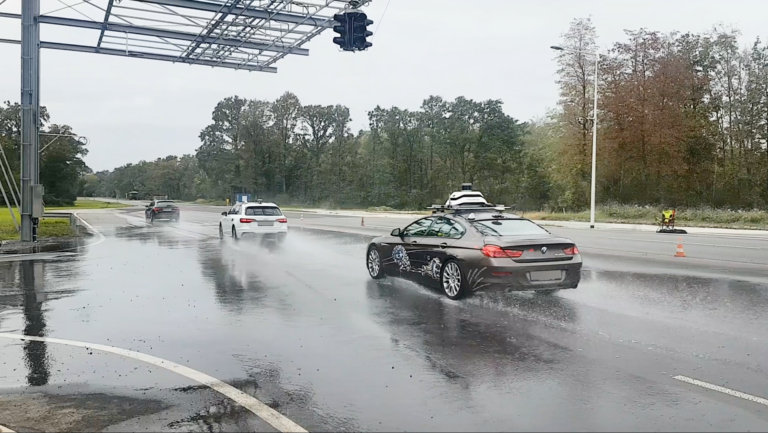
ADAS sensor tests with artificially generated rain – Digitrans Proving Ground for Automated Driving
The Institute of Automotive Engineering at Graz University of Technology, together with project partners, conducted rain tests with ADAS sensors in artificially reproduced rain for the first time on the proving ground in St. Valentin as part of the InVADE project.
